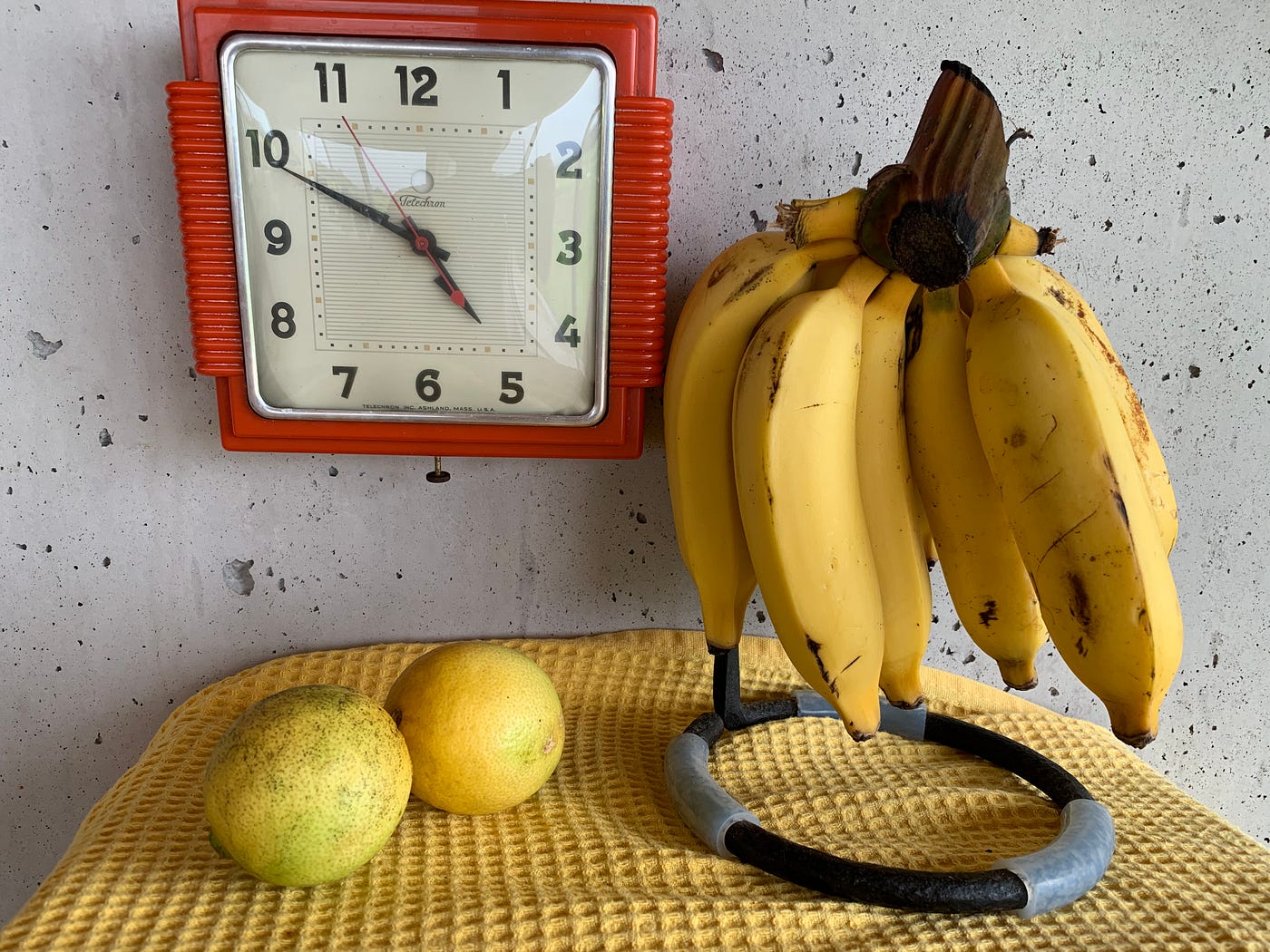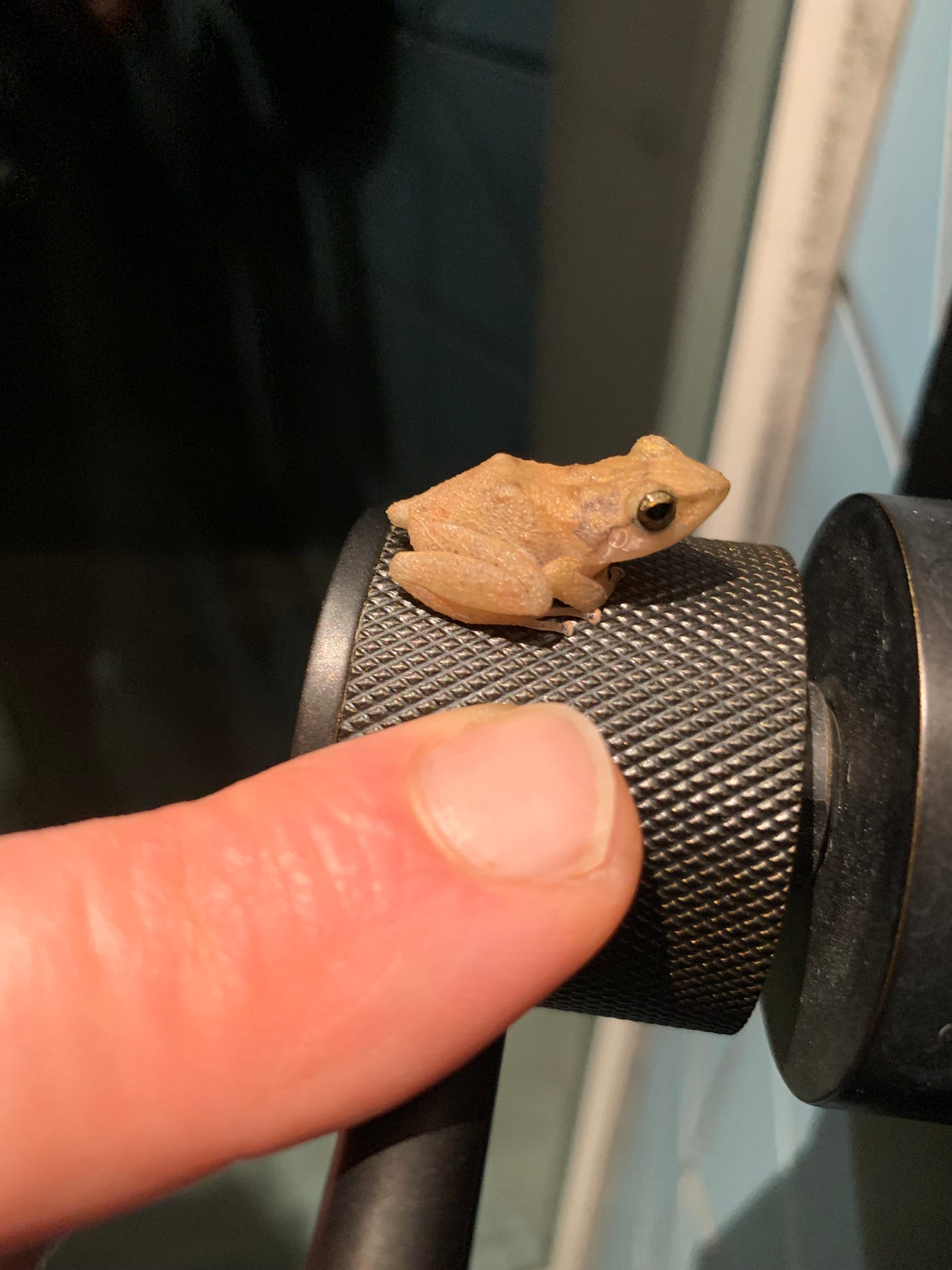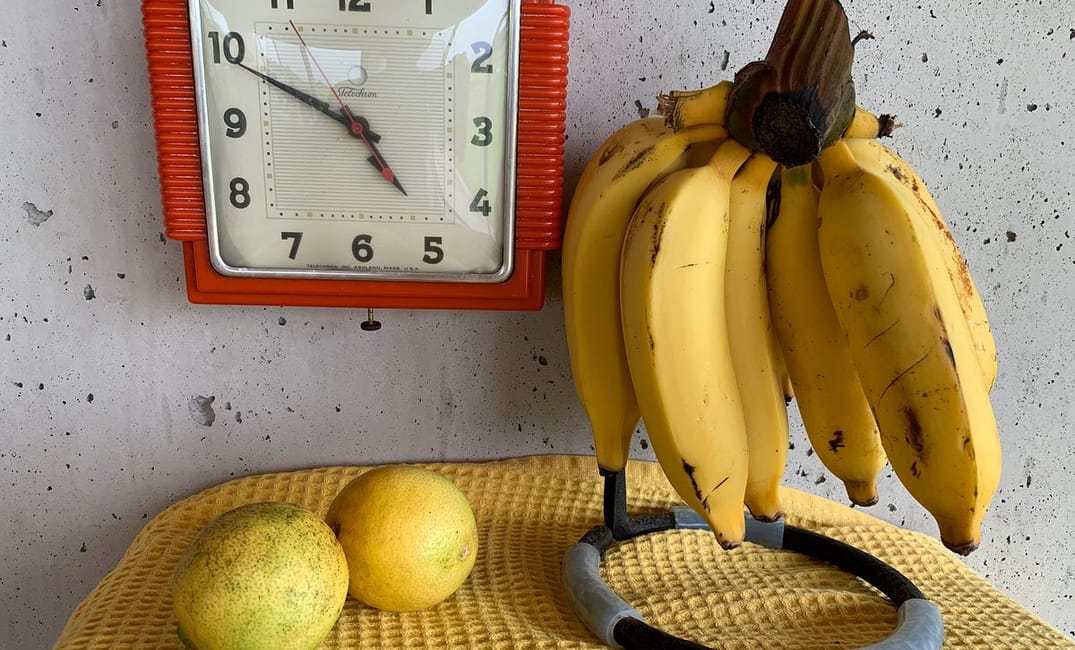
Eighteen months ago my husband moved to Hawaii. We planned for me to join him within a few months, once our twins launched for college and Elon Musk activated his StarLink internet satellite system for the Big Island. I intended to continue remote work with my psychiatric patients, but I fretted about adapting to Hawaii time.
Rather than being concerned about shifts in circadian rhythms, I should have been preparing for a change in the pace of life.
During the summer, Hawaii’s clocks are three hours behind those of San Francisco. I was already seeing many patients before their work days began, starting at 7:30 am. Unless I imposed my new life and schedule on my regular patients, I’d be starting at a punishingly early 4:30. And to add to the potential for confusion, Hawaii doesn’t go on Daylight Saving Time, so come November, the time differential becomes just two hours.
I knew that many people move, travel, and work across time zones without mishap. But I still worried that the makeshift calendar in my medical record system would desynchronize at some point and abruptly start misaligning appointments by a few hours.
******
Months before completing my move, the process of applying for my Hawaii medical license provided a premonition for the adjustments I would need to make in adapting to Aloha Time. The Hawaii license was probably unnecessary. I was going to continue video sessions with my San Francisco clientele, so retaining my California license should suffice. But due to uncertainty regarding rules and regulations in the wake of the huge, recent upsurge in telemedicine, I thought it prudent to maintain medical licenses in both my former and future states.
Usually I enjoy the obsessive-compulsive, scavenger hunt ritual required to accomplish such credentialing: hunting down old diplomas, obtaining verifications from various obscure governmental agencies, assembling and submitting the dozens of documents in the desired formats. But I was busier than I had been in thirty years. The various crises facing our country and our world had created a huge demand for mental health assistance. In addition, I was preparing our house and my practice for the pending move, running a household in SF without a car, and preparing my kids for college. I didn’t need an additional chore. It was time to delegate.
Online I found a company that offered to “expedite” medical licensing in other states, for a fee that more than doubled the actual license cost. It seemed worth the expense. In February I furnished them my social security number and other identifying data, provided access to my professional records and documentation, and authorized them to submit the proper forms on my behalf. The representative informed me that Hawaii worked more slowly than many other states, but that I should have my license in a few months, well before my anticipated move.
I waited through the spring and early summer. In June the expediter emailed me that she had submitted all of the documents. Hawaii denied receiving two of them. So she had resent them. (Which is why the tone of her email was resent-ful.) She attached copies of the second batch of documents, stamped by the Hawaii Medical Board confirming their arrival. She told me to expect my license in a few more weeks.
So I waited.… and I waited…. and I waited. By late summer I was getting anxious. I had paid hundreds of dollars, and provided access to vital personal information to an expediter I knew almost nothing about. The process had already exceeded the projected timeline. Am I being scammed?
Even though the whole purpose of contracting out this chore was to minimize my involvement, I decided to call the Hawaii Medical Board. I had other paperwork to do that afternoon, so I let the phone ring…. and ring… and ring…for….forty.…five….. minutes. What government agency lacks voicemail? Why aren’t they answering the phone during business hours? My worry about being scammed skyrocketed.
I called back the following week, at a different time of day. Again, the phone rang. This time for only three minutes. A clerk stated that I had reached the Hawaiian Medical Board. I described my reason for calling. Her first question was to ask for my social security number. I’m not supposed to reveal that info willy nilly over the phone! Isn’t that what a scammer would ask for? But this is the Medical Board. They already have my social security number. I recited the digits.
She thanked me and started rustling papers. Shuffle…shuffle…shuffle. Who shuffles papers now anyway? For three…. whole… minutes. She then paused and said, that yes, they had my application.
Another pause. “…….Um, can you tell me the status of my application?” Shuffle…shuffle…rustle…shuffle. For…another….three…full….minutes.
“Your application looks pretty complete. Except two forms are still outstanding.” I explained that my expediter had sent these forms to them twice, and had provided me with stamped verification that the medical board had received them.
Shuffle….shuffle….rustle….rustle….shuffle. Yup.…for…another….three…minutes.
“You’re right, we do have those documents. But you have to understand that we’re still on COVID protocols, and many of our staff are working from home. And some of them don’t have email.” WTF? What are you paying them to do then? Okay, so we have Aloha Time multiplied by COVID Time going on here.
She commented that she could see that they had been communicating only with the expediter and asked if I wanted to be included in future updates. She added that it looked like they were almost at the end of the application process. At this point it seemed like it would reduce my frustration to be apprised of what was (or wasn’t) going on at each step. I agreed to be put back in the loop.
Three days later, (the most prompt part of the whole process), I received an officially formatted email from the medical board. My application was deficient on four counts!
#1 — Your application has other outstanding forms or problems with it. Wait a minute, how does that count as a separate issue? That’s just redundant.
#2, and #3 Two forms are still outstanding. Great, those are the two that have been submitted twice, and I have confirmation they received them. Okay, we’re making real progress here.
#4 Documents submitted to the medical board have a twelve month shelf life and several of the items you submitted could be nearing this limit. You’re punishing me for your tardiness and incompetence?
I quickly forwarded the email to the expediter. She emailed back within hours that she had already countered all of these points with the medical board. She repeated that it still looked like approval was just weeks away.
So I waited….and waited… and waited. The board finally emailed me my new medical license….Exactly three weeks shy of a full year from starting the process. But since my move to Hawaii had been delayed, my license arrived months before my actual departure. Sure glad I used that expediter. Who knows how long it might have taken otherwise?
** * *
A few weeks into my new life on the rainy side of Hawaii, my appointment calendar is working smoothly. Being an early riser, and making some minor adjustments has helped me start work days close to 5:00 am. My internal clock is fine. When I used to exercise predawn in San Francisco, I could run in the roads, because even Market Street was pretty empty at those hours. Surprisingly, a fair number of Hawaiians rise early to avoid the heat of the day, or to admire the sunrises. My circadian rhythms aren’t even that out of synch with many who live here.
Time zone shifts aside, I also am learning to cope with a different pace of life. When I arrived in San Francisco thirty years ago, the city was still touting its WWI slogan “The City That Knows How”. Road crews repaired the damage to the Bay Bridge from the Loma Prieta Earthquake within a month. In contrast, on the Big Island I’m realizing that when a workman says that he’ll arrive “late midday”, it may mean….tomorrow. Or that when a store clerk informs me about a pending delivery, we will have very different interpretations of the word “quickly”.
One of my friends with ADHD proudly wears a t-shirt proclaiming “Molokai Time — Whenever you decide to show up”. I’m immersed in that world. It would be easy to feel frustrated, impatient, or just resigned to things happening more slowly. I’ve met some individuals with lifelong habits of punctuality who feel confronted or thwarted by folks living at a different tempo. Have I transitioned from a bustling, productive world to a malfunctioning one?
But is it fair or reasonable to judge Hawaii by San Francisco standards? Not to mention that San Francisco often no longer meets San Francisco standards. The Bay Bridge required just a month to be repaired and reopened but two dozen years to be replaced. The city throws hundreds of millions of dollars at homelessness without much demonstrative improvement in the lives of those unhoused and impoverished, or in the lives of the more affluent or organized citizens who gaze upon or past the individuals with whom they share the city’s 47 square miles.
Aloha Time is as much about space as time. The Big Island covers eight times as much land as San Francisco with only a fifth of the population. Although the rush hour traffic jams can slow the flow of cars in the more populated areas, at night the biggest road, the belt highway encircling the island, remains devoid of vehicle. You can hear a single truck from miles away as it powers up the shallow volcanic slopes.
Psychiatrist and philosopher Iain McGilchrist’s study of the cerebral hemispheres concludes that the our left and right brains don’t just subsume different functions, but more importantly, they process information and create our impressions of reality in very different ways. The left brain likes rules and timelines and organization. It constructs its view of reality by assembling discrete pieces or “facts” according to set guidelines. Western Civilization, focused on productivity and propriety, is a left brain creation.
The right brain is more perceptive, holistic, and integrated, and prioritizes relationships and contexts. Aloha Time/Space aligns well with right brain processing. Viewing Aloha Time as sloppy, or slow, or less sophisticated unhelpfully tries to shoehorn this conception of reality into a left brain scenario.
McGilchrist further points out that because the left side controls language, its very articulateness leads it to subvert the relationship between the hemispheres. The left brain thinks that it knows what is best, and how things truly exist, and argues the point. But actually, the right brain integrates the information and perspectives gathered by both hemispheres, and develops a more comprehensive understanding of the world, even if it can’t talk much about it. The left brain worldview, being extractive, constructed, piecemeal, and categorical, misses nuance, and struggles with paradoxes and metaphors.
My left brain account of applying for a Hawaii medical license emphasized how I waited, and waited, and waited. The left brain granted the most weight to my waiting, and summed up the scenario as a fiasco. But the right brain saw the bigger picture: I actually received the license before I got to Hawaii . It arrived in good time. Not slow time.
So I need to shed my left brain biases and embrace right brain / Aloha Time. Aloha Time is not just slower, or more relaxed, but actually more aligned with reality, not less. That sounds pretty good to me.

When my left brain found a small frog in the shower this week, it assessed the amphibian to be in the wrong time and place. (Separate from the Puerto Rican coqui/koki being an invasive import to the Hawaiian Islands.) But my right brain could embrace both that the frog “didn’t belong here” and simultaneously that for the moment I was sharing my room with a beautiful and adaptive creature. In Aloha style I could both admire the little critter and gently transport it out of the house.
I hope that the longer I live here, the more I welcome the Aloha spirit into my perspective. Now I just need to find ways to adjust to my husband routinely waking up at 3:40 am.







